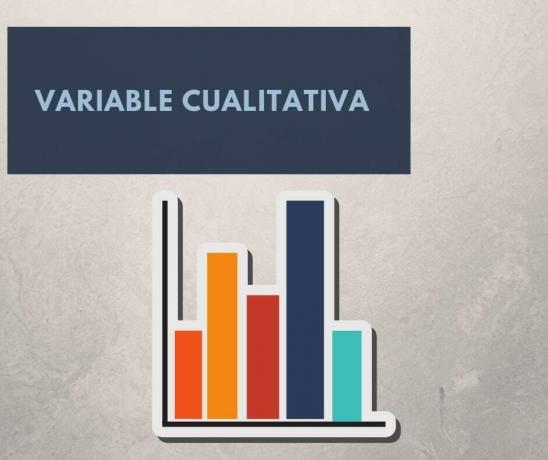The term variable in general it refers to objects or events susceptible to change, that is, it is about events of little stability that in time may present alterations which makes them consider fickle.
From the point of view of statistics, a variable makes mathematical sense, measurable in various cases by adopting different values. These variables can be qualitative variables, which state characteristics and quantitative variables, which express numerical quantities.
Advertisements
In this article you will find:
Definition of qualitative variables

It is understood by qualitative variable, that kind of statistical variable that describes qualities, characteristics and / or circumstances of some object, person or eventuality, without the use of numbers, that is, it expresses a non-numerical category, for example, the sex (female or male) of a individual.
Advertisements
They are also known as categorical variables, and in simpler words they are variables that do not strike a natural sense of order, they are measured on a nominal scale.
Types of qualitative variables
These variables can adopt different values, if they only manage to accommodate two values they are called dichotomous, for example: an individual can be "alive" or "dead", there is no third option.
Advertisements
Binary
In this specific case, the qualitative variable can assume a specific value, of 0 or 1.
Example, sex of an individual, male or female.
Advertisements
If the qualitative variable acquires more than two values is known as polynomial, this group in turn, is divided into nominal variables and ordinal variables.
Nominal
It is a variable not represented by numbers, so it does not follow an order pattern, which makes it more mathematically imprecise.
Advertisements
Example: The colors, orange, yellow, blue, red, black, etc.
Ordinals
Also known as a quasi-quantitative variable, it incorporates a modality of variable that does not require numbers, but does follow an order pattern.
Example: Socio-economic level, High, medium and low.
Examples of qualitative variables
There may be a wide variety of examples that help us identify a qualitative variable, among these we have:
- Marital status of an individual: Single, married, divorced, widowed.
- Non-numerical grade of an evaluation: Excellent, passed, accepted, failed.
- Eye color of an individual: Black, brown, green, blue, etc.
- Profession: Engineer, architect, doctor, lawyer, etc.
- Academic status: Professional, technical, basic.
- Recognition medals in sports competition: Gold, silver, bronze.
- Intensity of a sound: intense, moderate, weak.
Qualitative variables characteristics
Next, we present some characteristics of the qualitative variables:
- The main characteristic of a qualitative variable is that it cannot be measured numerically, nor does it allow the realization of mathematical equations.
- Does not issue specific data
- Only occasionally admits an order, but it is not numerical, it is said to be a nominal order.
- Describes a quality, condition, or characteristic of mathematical devices.
- They are subdivided according to the number of values it supports.
- They can be used in different applied studies in fields ranging from economic, social and scientific.
- It allows to carry out studies based on the method of qualitative research, supported by observation, of information collected on behaviors, opinions and open responses for subsequent interpretation.
Differences between qualitative and quantitative variables
On many occasions the qualitative and quantitative aspect are compared or contrasted, forming species of unequal prototypes to address analytical perspectives of events, objects and even production processes.
When talking about statistical variables, two types of variables can be differentiated: qualitative variables and quantitative variables, they present quite specific differences such as:
- Qualitative variables express values that correspond to qualities, attributes, traits or characteristics, for On the other hand, in the case of quantitative variables, values are always expressed with a range necessarily numeric.
- The qualitative variables focus on the environment of these realities and their dynamics, on the other hand, in the case of quantitative variables focus on determining and measuring the strength of a variable in relation to other variables.
- Both variables are used statistically in the verification of an economic (statistical) study, however, the qualitative variables provide a general and determined value When dealing with qualities, in the cases of quantitative variables they provide a specific result or value, without any margin of doubt.
Finally, it is worth mentioning that a quality is an existing property in any individual, object, entity or state, which allows its analysis when making a comparison with another similar, so that the qualitative aspect obeys the social, cultural and subjective perception of the individual.
The term is also used in reference to study and analysis processes focused on variables. of qualities and quality, such as the qualitative research, qualitative approaches, qualitative reports, among others.
In this sense, it is important to mention qualitative analysis, which is the study that reveals the properties, characteristics, specific benefits of an object, highlighting its distinctive value. This type of study can be used in different areas, including social and scientific research, even in production.


